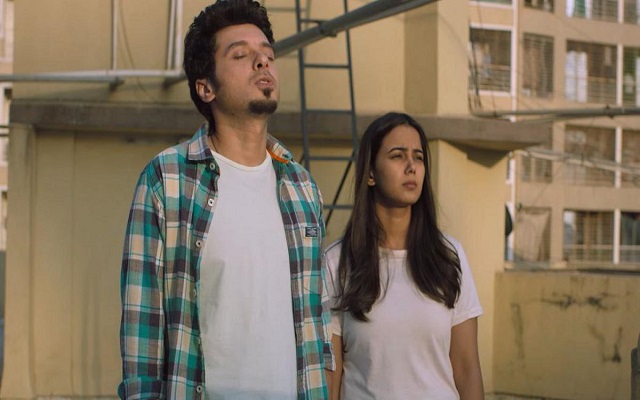Sony Liv has been on a bit of a hot streak. It quite easily aced the OTT wars last year with standout shows like Gullak , Tabbar and Rocket Boys, and continues to find worth in semi to decent outings like Maharani. Moreover, it has done what Netflix, despite its incredible clout has struggled to – find the pulse of the Indian audience. With its latest Salt City, the streaming service takes a couple of steps back. Salt City is a bafflingly inept show about a Mumbai family that is neither about Mumbai’s eccentricities nor is it really about the concoction of conflict and resolution that the Indian family almost always poses as. It is instead, a dated soap that looks like it was made in the 90s, with a sprinkle of audacity that looks too cumbersome and unappealing for its own good. Salt City is the story of the Bajpai family headed by snide and often rude patriarch Harish, played by the largely wasted Piyush Mishra. Mishra is in Mulk form here, rudely delivering lines and casually conveying the narcissism of a father who thinks nothing of his four children. Harish’s middle-class bitterness would have worked had it been toned down to the point that it also humanised him. Instead Harish comes off as a snob, who is also mind you having an extramarital affair. In one scene, intoxicated, he creepily stares at a love mark on his chest. This absurdist and often abstract tone of the show is impossible to interpret and get on-board with. Harish has three sons, Saurabh, Aman and Nikhil. The eldest, Nikhil has apparently moved out of the Bajpai family house to pursue bigger dreams. He wants to run his own start-up, the mere mention of which causes Harish to convulse in middle-class denial. Saurabh, played by the Divyendu Sharma , is a dilettante who isn’t really committed to anything other than having a good time. Nikhil, the one in the middle is a generic underachiever, with the depth of tracing paper floating on water. It’s hard to understand what the show aims to accomplish in the streaming world when its setup is so widely cast, it would require the prehistoric run of 100 episodes to get to not one, but many of its million points. Is this show about a broken family, about familial secrets, about ambition, about letting go, about sexual liberation, about guilt and rebellion? The answer is somewhat yes and no to all of them and more. There is simply no narrative destination in sight that justifies the haemorrhaging approach of a series that only wastes talents like Sharma and Mishra but overplays its soapy hand to the extent that each of its 40-minute episodes feel 40 minutes too long. There are some bizarre, pulpy twists to the family dynamic here. Aman’s wife has the hots for Nikhil, her husband’s younger brother and cosies up to him in situations that seek to create and edge but only successfully alienate the viewer. There is no paucity of affairs on screen, including the one that papa Bajpai is embroiled in, but the deafness of the script neither sensualises them nor underlines its moral stance. It’s all ambiguous, all the way. Divyendu is visibly trying to inject humour into the show that is so stiffly acted and hammily enunciated for the audience you hardly feel an emotional connect with any of the character’s dead walking through the shows runway. It’s one crash landing after the other. There are awkward marriages, punctuated by even more awkward affairs. For some reason even the Aman’s brother-in-law has a partially abusive side to him, for the heck of it. Also, there are literally so many criss-crossing relationships here, you simply lose track before the series can build any form of intrigue. It’s paced like a soap, acted like an off-kilter play, framed like a thriller and presented like an apology. Piyush Mishra’s role as the annoying patriarch, at least on paper makes sense, but his bitterness feels repulsive than the kind that might inspire intrigue or empathy. It’s just not clear if the character has a virile, more vicious side to him which is kind of ironic because the side that we see is no less toxic either. In one scene, after Saurabh gets into an argument with a truck driver toing his car, instead of helping his son, father Bajpai takes and autorickshaw and escapes the scene. At home he appears sweaty, angry and in no mood to repent. It’s an utterly bizarre sequence and though it might be trying to highlight the borderline dictatorial methods of child rearing that Indian parents believe it doesn’t quite add up. In fact, it feels absurdist in a show that has no idea what it is supposed to do with its many characters. It’s a problem most long-running TV soaps turn into their strength by drifting rather than sprinting for the sake of a tired primetime audience. On OTT though its criminal. A waste of time, not just ours but also the couple of actors here are trying, despite. Manik Sharma writes on art and culture, cinema, books, and everything in between. Read all the Latest News , Trending News , Cricket News , Bollywood News , India News and Entertainment News here. Follow us on Facebook , Twitter and Instagram .
Piyush Mishra and Divyendu Sharma’s Salt City is an epic misfire
Manik Sharma
• June 17, 2022, 10:29:04 IST
Salt City is headlined by Piyush Mishra and Divyendu Sharma, in what is a soapy, ponderous and clueless misfire that might actually work on traditional TV.
Advertisement
)
End of Article